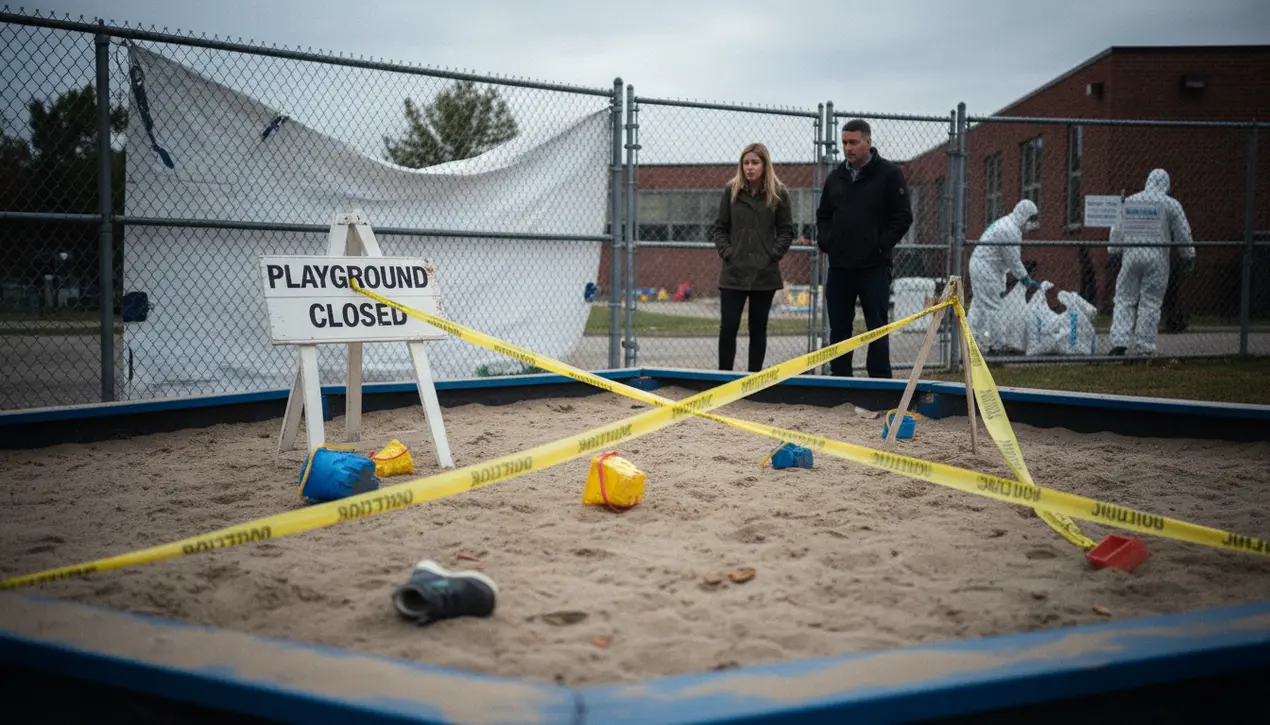
Otheraccidents & disastersIndustrial Accidents
Australian and NZ Schools Close Over Asbestos in Play Sand.
RA
Rachel Adams
2 hours ago7 min read1 comments
In a move that has sent a ripple of unease through communities and playgrounds alike, Australian regulators have been forced to issue a recall for several sand products destined for children's play areas after confirming the presence of asbestos. While authorities are quick to label the immediate health risk as 'low,' the very utterance of that word—asbestos—in the same breath as 'children's play sand' evokes a profound ecological and public health failure, a stark reminder of how the toxic legacies of our industrial past can resurface in the most innocent of places.This isn't merely a product recall; it's a symptom of a deeper systemic issue, a breach of the fundamental trust parents place in the safety of their children's environments. The affected products, which have been pulled from shelves and schools across the nation, including in New Zealand which often follows Australia's regulatory lead, represent a catastrophic breakdown in the supply chain's duty of care, raising urgent questions about the sourcing and processing of materials for consumer goods.As a biologist with a focus on environmental toxins, the scenario is hauntingly familiar; we have seen this story before with lead in toys and phthalates in plastics, where the pursuit of cheap materials blindsides long-term health considerations. The type of asbestos identified, if disturbed and inhaled over prolonged periods, is a known carcinogen, and while a single exposure in a sandpit may not be catastrophic, the principle of the precautionary principle must be invoked without hesitation—there is no acceptable level of a known carcinogen in a child's play space.This incident forces us to confront uncomfortable truths about our consumption and waste cycles; where did this contaminated sand originate? Was it from recycled construction and demolition waste, a practice that, while eco-friendly in theory, can become a vector for poison if not managed with forensic scrutiny? The emotional weight of this discovery is immense, picturing toddlers with their buckets and spades, their joyful excavations potentially kicking up microscopic, needle-like fibres. The regulatory response, though necessary, feels clinical against the backdrop of parental anxiety.It underscores the critical need for more robust, independent testing regimes for all materials that come into intimate contact with our children and our environment. This is not just an Australian problem; it is a global warning. It echoes the silent, creeping threats we face from a polluted planet, where the consequences of historical environmental mismanagement are never truly buried, but can surface, quite literally, in the sand beneath our children's feet, demanding a more vigilant and ecologically conscious approach to the very building blocks of our daily lives.
#featured
#asbestos
#product recall
#schools
#children's safety
#health risk
#Australia
#New Zealand
Stay Informed. Act Smarter.
Get weekly highlights, major headlines, and expert insights — then put your knowledge to work in our live prediction markets.
Comments
Loading comments...
© 2025 Outpoll Service LTD. All rights reserved.